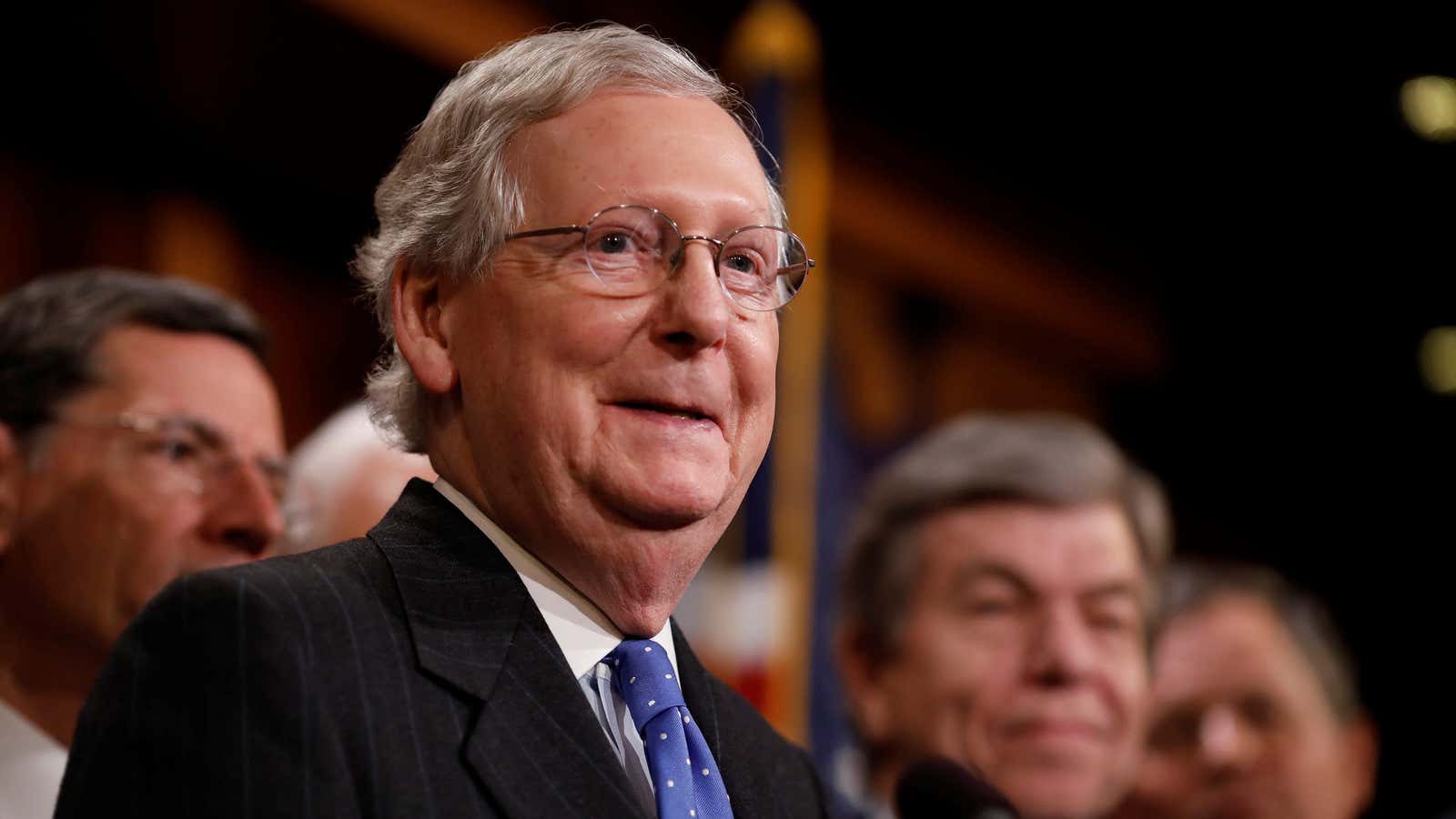After passing a bill that slashes taxes for companies and the very wealthy, many forecast that the next step for the Republican-led Congress and White House would be “entitlement reform”—cutting the $1-trillion safety net that protects the US’s poorest, eases retirement, and aims to provide affordable medical care to all.
Forget it, Senate majority leader Mitch McConnell said today (Dec. 21) at an Axios event in Washington, DC. “I don’t expect to see that on the agenda.”
Instead, the deeply divided Senate is going to start working in a bipartisan way again, he predicted. That’s because what Democrats are willing to do “is important,” in the year ahead, McConnell said.
McConnell led the Republicans’ unprecedented “no-cooperation” approach during Barack Obama’s presidency that culminated in Obama being unable to fill an empty Supreme Court justice seat. He may have difficulty getting Senate Democrats on board with the Republican agenda in the months to come.
Rather than trimming food stamps, or Medicaid—which Democrats won’t support—expect the Senate to pursue a bill to fix the US’s crumbling infrastructure, McConnell said, and take up a banking reform act that has backing from both Democrats and Republicans.
The last few weeks could present hurdles. The hastily-passed tax bill was “the single most disappointing piece of legislation I’ve been involved in” in my eight years in the Senate, Mark Warner, the Democrat from Virginia, said at the same event. The bill was “done in the dark,” he said, with no effort at bipartisanship or transparency and “absolutely will not stand the test of time.”
Asked whether Democrats in the Senate would work with Republicans going forward on other issues, Warner said the tax bill “has left me and others bitterly disappointed.”
Meanwhile, president Donald Trump’s popularity remains historically low. Some Democrats have quietly expressed concern that aligning with Republicans on any issue could anger their constituents, with so many of them eager to see the president leave office.
McConnell’s change of heart comes because the tax bill, which passed along party lines with a 52-48 vote, used the budget reconciliation process, which only required a simple majority to pass. Any major upcoming bills will need to get a 60 vote majority in the Senate, however, meaning they need support from Democrats.
Republicans may plan to reach across the aisle when it comes to legislation, but McConnell was very clear about where he hoped to take the country.
With a Republican in the White House, and both houses of Congress, he said, “we have a unique opportunity here” to “move America right of center.” Already, Republicans can “demonstrate we have already had significant progress,” he said. “Look at the Supreme Court,” he said, “for a generation now it will be right of center.”
